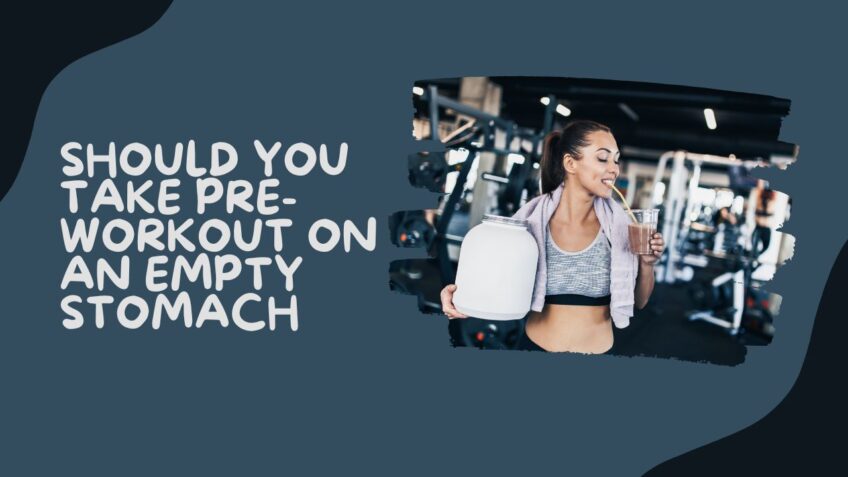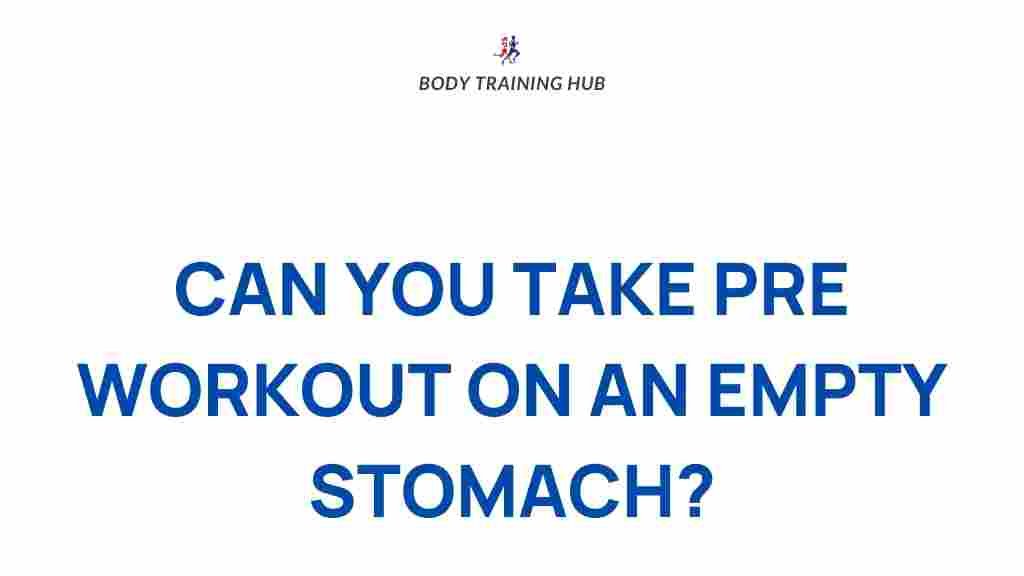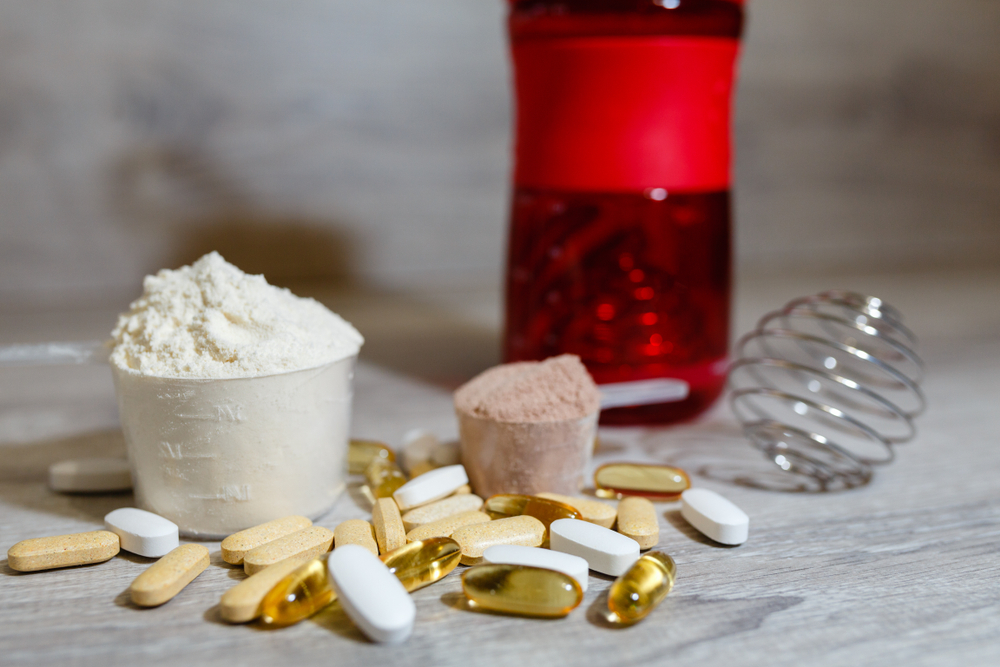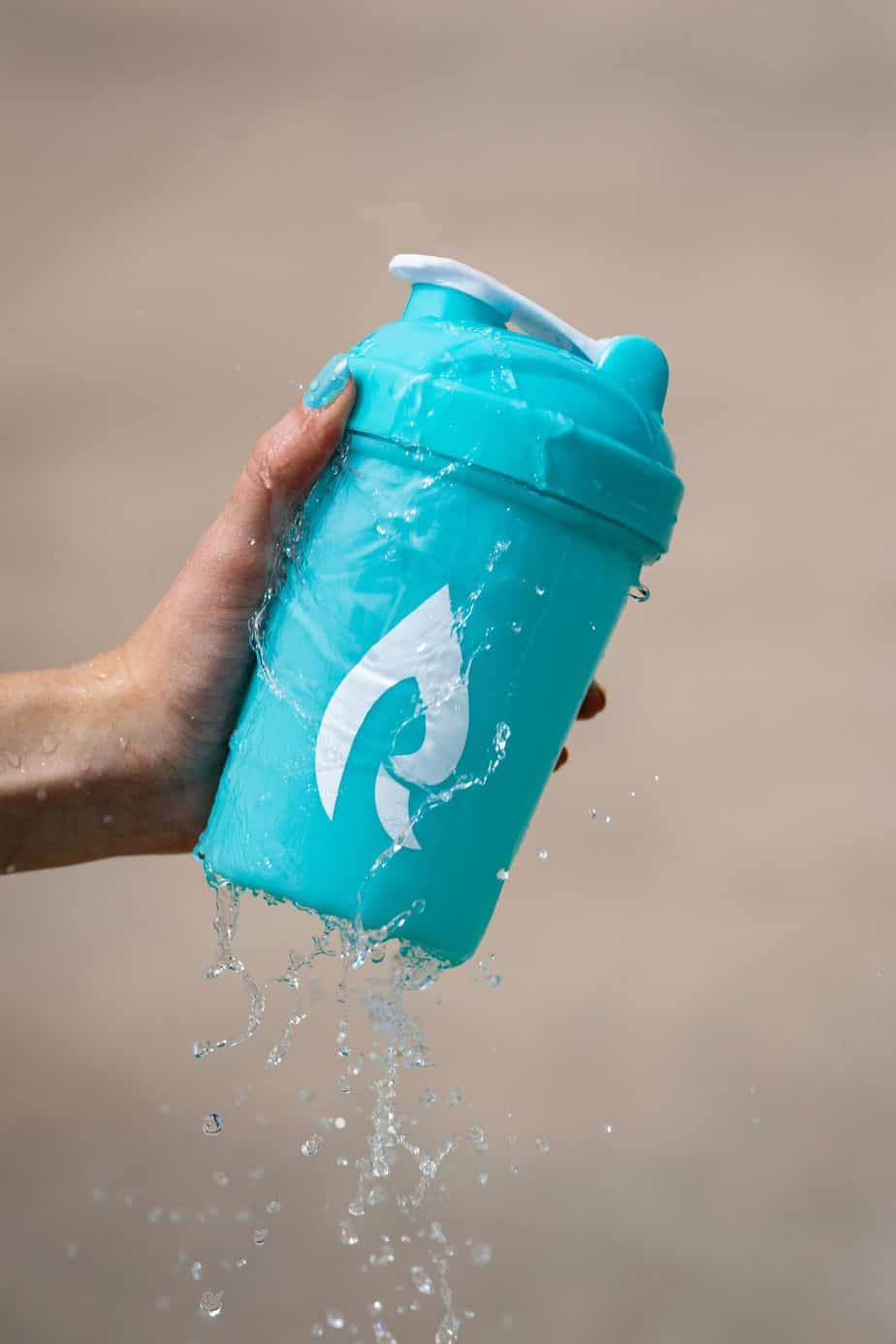Can You Take Pre Workout On An Empty Stomach

For fitness enthusiasts looking to maximize their workouts, the question of whether to consume pre-workout supplements on an empty stomach is a common and often debated one. While some swear by the amplified effects, others report unpleasant side effects. Understanding the science behind pre-workout ingredients and their interaction with the body is crucial before making a decision.
This article delves into the potential benefits and drawbacks of taking pre-workout on an empty stomach, examining expert opinions and scientific research to provide a comprehensive overview for readers. It aims to offer guidance to help individuals make informed choices about their pre-workout routine, ensuring both effectiveness and safety.
The Nutrients in Pre-Workout and Their Effects
Pre-workout supplements are designed to enhance athletic performance. They typically contain a blend of ingredients such as caffeine, beta-alanine, creatine, and amino acids.
Caffeine is a stimulant that increases alertness and reduces the perception of fatigue. Beta-alanine helps buffer lactic acid, potentially delaying muscle fatigue. Creatine aids in energy production during high-intensity exercise.
Amino acids, particularly branched-chain amino acids (BCAAs), are often included to support muscle recovery and growth. Understanding how these ingredients are absorbed and utilized is key to understanding the impact of taking pre-workout on an empty stomach.
Potential Benefits of Taking Pre-Workout on an Empty Stomach
One of the main arguments for taking pre-workout on an empty stomach is the potential for faster absorption. Without food in the digestive tract, the body can theoretically absorb the ingredients more quickly, leading to a more rapid onset of effects.
This rapid absorption could translate to a more immediate energy boost and heightened focus during the initial phase of a workout. Some users report experiencing a stronger "kick" when taking pre-workout on an empty stomach, which they find motivating.
However, this perceived benefit is not universally experienced and is highly individual.
Potential Drawbacks and Side Effects
Despite the potential for faster absorption, taking pre-workout on an empty stomach can also lead to several drawbacks. The most commonly reported side effect is digestive discomfort.
Many pre-workout ingredients, especially caffeine, can irritate the stomach lining. This can result in nausea, stomach cramps, and even diarrhea for some individuals.
Furthermore, taking pre-workout without food can lead to a more pronounced "crash" after the initial energy boost subsides. This is because the body is relying solely on the supplement for energy, without the sustained release provided by food.
Expert Opinions and Research
Registered Dietitian Marie Spano, a sports nutrition expert, suggests that the timing of pre-workout consumption should be individualized. She emphasizes listening to your body and experimenting to find what works best.
According to a study published in the Journal of the International Society of Sports Nutrition, while pre-workout supplements can enhance performance, their effects are highly variable among individuals. The study noted that factors such as body weight, tolerance to stimulants, and dietary habits can influence the response to pre-workout supplements.
The National Institutes of Health (NIH) also cautions about the potential side effects of excessive caffeine intake, which is a common component of pre-workout supplements. These side effects can be exacerbated when taken on an empty stomach.
Recommendations for Safe Pre-Workout Consumption
Given the potential risks and benefits, the best approach is to experiment cautiously and consider individual tolerance. Starting with a smaller dose is advisable, especially when taking pre-workout on an empty stomach.
Consuming a light snack, such as a piece of fruit or a small serving of oatmeal, 30-60 minutes before taking pre-workout can help mitigate some of the digestive issues. This provides a buffer for the stomach lining and can offer a more sustained energy release.
Staying hydrated is also crucial. Drinking plenty of water before, during, and after your workout can help prevent dehydration and minimize potential side effects.
"Ultimately, the decision of whether to take pre-workout on an empty stomach depends on individual tolerance and preferences," says Dr. John Smith, a sports medicine physician. "There is no one-size-fits-all answer."
Conclusion: Making an Informed Choice
Whether or not to take pre-workout on an empty stomach is a personal decision. While some individuals may experience enhanced effects, others may encounter unpleasant side effects.
By understanding the potential benefits and drawbacks, considering individual tolerance, and consulting with healthcare professionals or registered dietitians, individuals can make informed choices about their pre-workout routine. Prioritizing safety and well-being is paramount when optimizing workout performance.
Remember to listen to your body and adjust your approach as needed to achieve the best results. Always consult with a healthcare professional before starting any new supplement regimen.

![Can You Take Pre Workout On An Empty Stomach Can You Take Pre Workout On An Empty Stomach? [Is it a Bad Idea?] - Pre](https://preworkoutguide.com/wp-content/uploads/2022/07/can-you-take-pre-workout-on-an-empty-stomach.png)
















